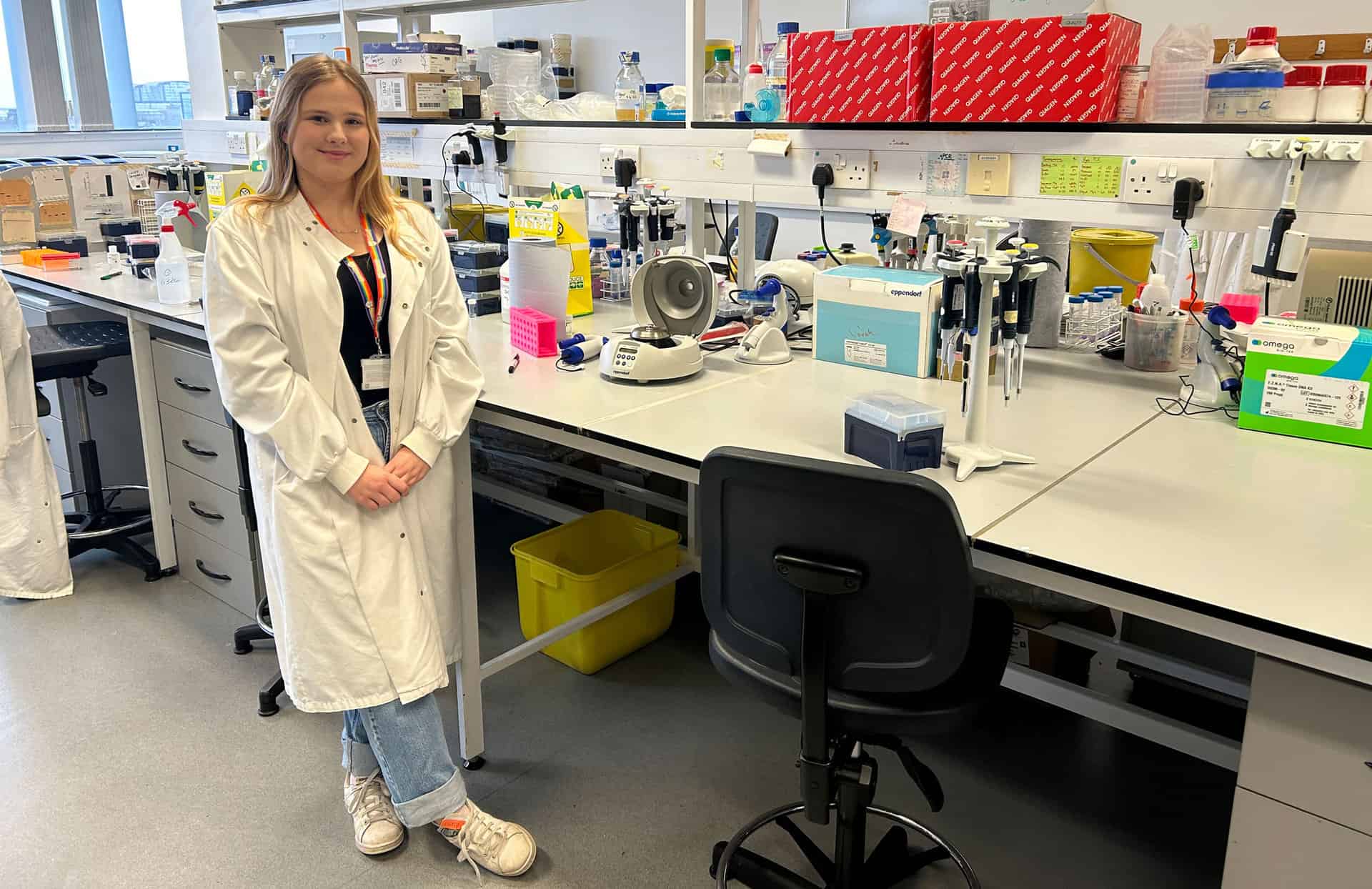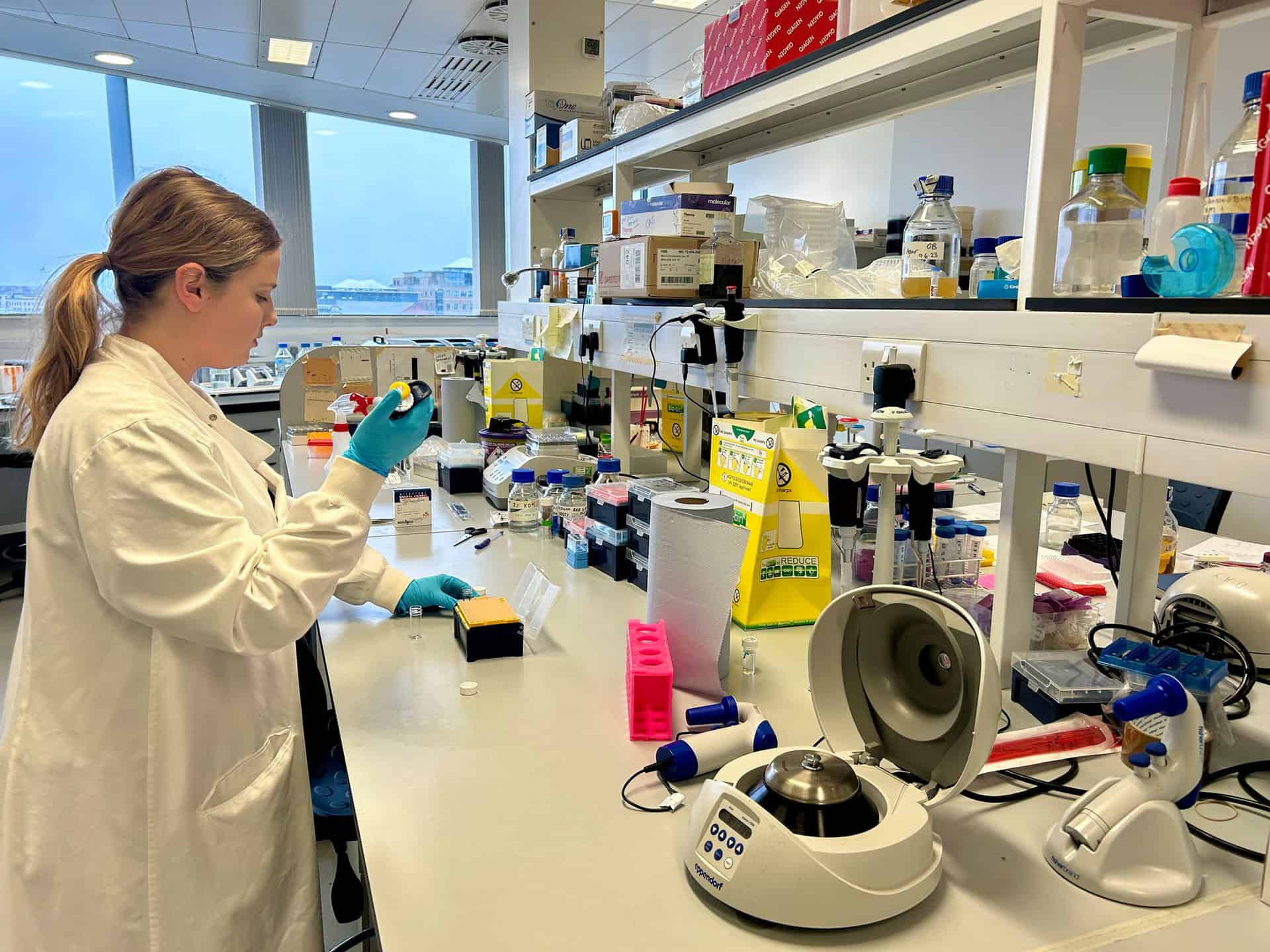
This Sunday (11 February) is International Day of Women and Girls in Science, which is an annual day dedicated to promoting gender equality in STEM fields.
In recognition of that, PhD student Sarah Orr, who is based at Life, talks about how her love of science started at an early age thanks to incredible role models and how every day “provides endless possibilities” in her research.

PhD student Sarah Orr knew that she wanted a career in science from a very early age.
Having a grandad as a biology teacher was the catalyst, as her childhood was filled with carrying out experiments and her interest then grew throughout school.
Sarah, 22 from Consett, County Durham, said: “I was very lucky that as a child I had such great role models who really brought science to life for me; firstly, my grandad and then an inspiring biology teacher who taught me from the age of 13 right through to my A Levels.
“I also loved coming to Life Science Centre, both with my family and on school trips too. There were so many things that interested me – much more than a museum – and I loved the interactive exhibits where you could get really hands on.
“I suppose I was aware of the gender bias in science in that there were definitely more boys than girls in my classes, but it never put me off.
Making a difference
“I studied three sciences at GCSE and then went on to choose Biology, Chemistry and Maths at A level. At this stage I knew I wanted to do research of some description as I love learning in general and the idea of making a difference to people really appealed.”
Sarah spent the next four years studying an Integrated Masters at Newcastle University, which brought her back to Life.
She added: “In my third year, I got the opportunity to do an 8-week research project looking at the genetics of kidney diseases, based at Life. It was such a great experience and getting the opportunity to be based at Life, with its excellent reputation for research and great facilities, was wonderful.
“I loved the work I was involved in and then in my fourth year I went back to the same lab to do a different project.
“The research for my dissertation centred around kidney disease and I found out the genetic variants that caused a dad and two children in the same family to have kidney disease. It was really rewarding to be able to give the family an explanation and my dissertation went on to be published.
“All the research work I was involved in at Life really helped to confirm what I wanted to do and spurred me on to apply for my PhD in the genetics and epigenetics of osteoarthritis. I love the idea of working on research that has the potential to affect a lot of people.
Endless possibilities
“Each day is different and provides endless possibilities – it’s quite exciting that you don’t know what you are going to find.
“I spend a lot of time on a computer, using coding and bioinformatics to analyse big sets of data. Once I get some genes or areas of interest, I can take it into the lab and use cell culture techniques that grow cells to extract protein or DNA and do PCR reactions to try to prove what I have found.
“Being based back at Life for my PhD is ideal. I’m studying under the supervision of Dr Sarah Rice, another inspirational woman in STEM to learn from. There are also a lot of other research groups based here, which provides many collaboration opportunities. Working alongside people who have similar interests, but different areas of expertise, is important to drive ahead research.
“I have never felt that my gender is a drawback – I have had so many great opportunities, but I appreciate that I had an advantage being introduced to science at an early age and I’ve been lucky to have incredible role models since then.
“As more female role models advance in the field and STEM events are promoted within schools, hopefully more girls will realise that a career in STEM is a very real option for them.
International reputation
“I still have three and a half years to go in my PhD. I definitely want to stay in the field of genetics and I would love to stay working in the North East. The region is a really big hub for science and has earned an international reputation.
“It’s a real privilege knowing that I don’t have to move too far from home to be able to pursue the career that I want, with opportunities to take part in world leading research literally on my doorstep.”
